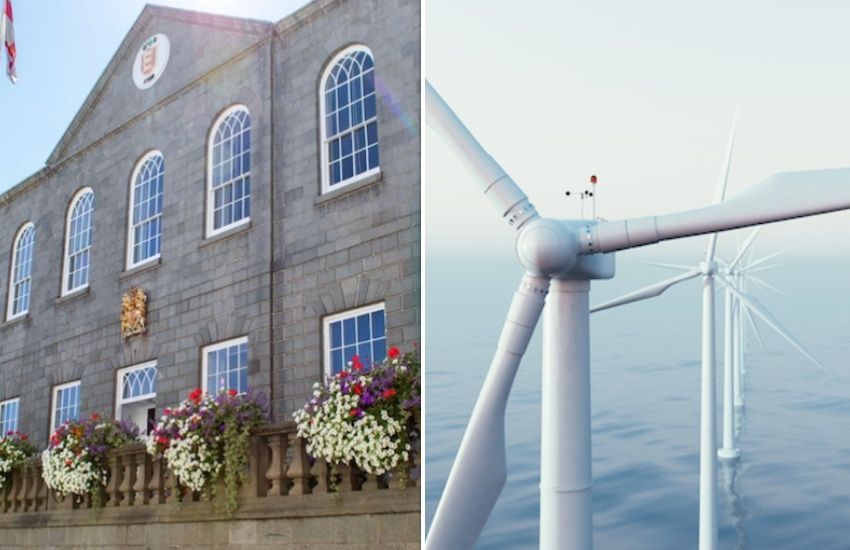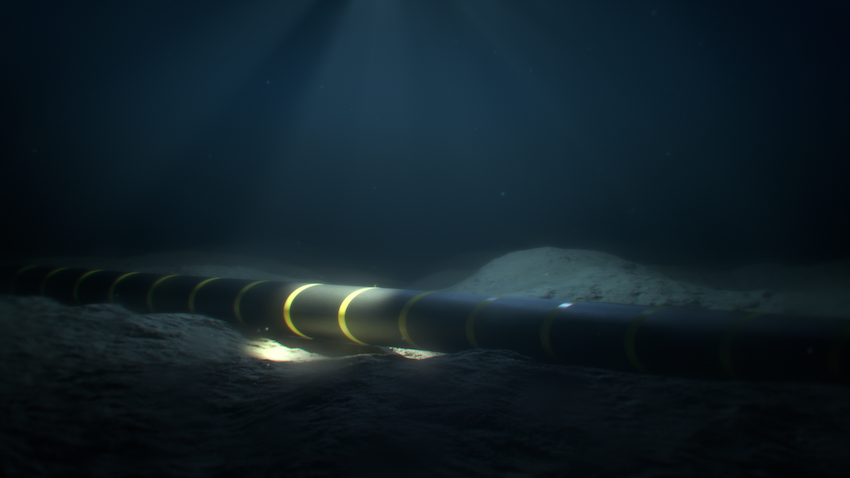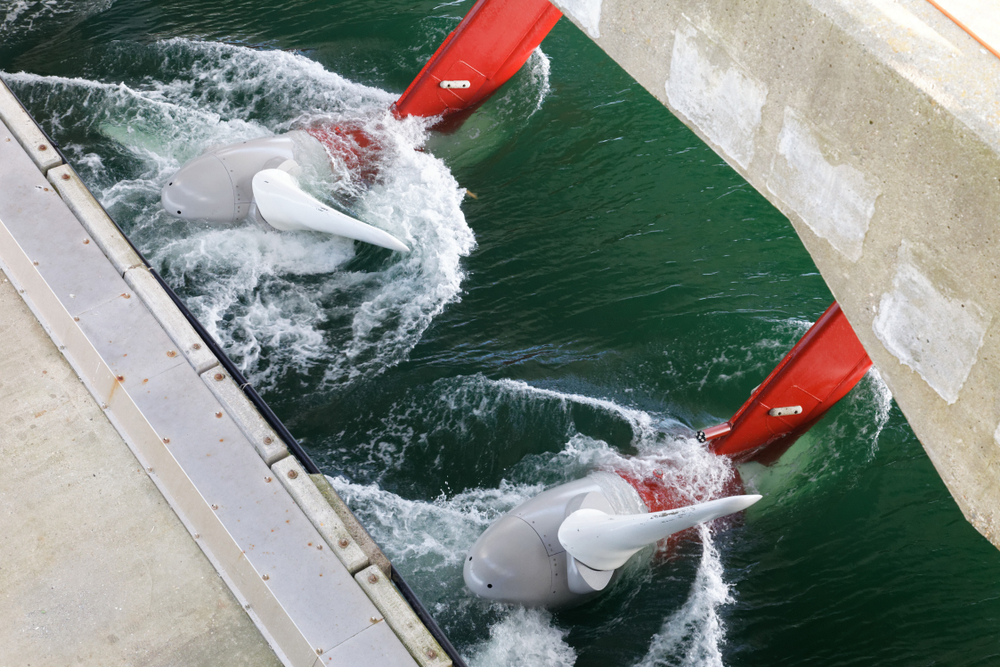


The States have decided future electricity supply should be bolstered through a new undersea cable direct to France, an offshore wind farm, and through more local solar panels, after a strategy received near unanimous support from deputies following a long and detailed debate.
Only Deputy David De Lisle voted against Environment & Infrastructures’ package, while Deputy Jonathan Le Tocq and Alderney Representative Alex Snowdon did not vote.
A 100MW cable to France, on top of the existing undersea cable which supplies the island via Jersey, a fixed-bottom offshore windfarm supplying 65MW and moves to lubricate the rollout of more solar panels, with a view to supply 10% of the island’s power at peak times, could be one of the ways in which Guernsey powers the future.
The proposals estimate that around 50% could be provided through wind, up to 43% by import, and the remainder from the sun with the total cost estimated to be £1.7bn up to 2050, but E&I stress doing it this way would be hundreds of millions cheaper than alternatives.
But the States have not decided on any single project or committed to any spending. Further work will now need to be conducted in preparation for securing future energy supply, resilience, and affordability in line the with agreed strategy.
Costs are likely to change and could come from a variety of sources; government, Guernsey Electricity, and private investment.
Multiple members praised the presentations and briefings provided by E&I in the run-up to the debate, and the chamber applauded as the final vote was cast.
An amendment brought by Deputies Bob Murray and Sam Haskins stressing affordability was pulled after late night talks with the E&I President saw a consensus solution tabled instead which added that should any future changes render certain technologies more viable or affordable for consumers, they would be considered, and changes brought back to the States for consideration.
That was supported by 37 deputies.

Pictured: Guernsey Electricity has long-desired a new undersea cable.
Some members had queried why tidal generation was not part of the proposals, with Deputy de Sausmarez saying the costs would be double than what has been put forward due to current commercial unviability.
She assured that the island is well connected to tidal stakeholders, and it could become a part of the strategic direction in future should costs fall.
A windfarm will be cheaper to operate in the long-term which is why its inclusion in future energy supply costs less overall than options without it, as maintenance costs for fossil fuel generators is high and because of the costs to extract, refine and transport carbon-based fuels, she said.
She said there is already “lots of interest” from third parties in such a development, albeit with conversations at early stages, and that it could form part of a much larger project that supplies other jurisdictions.
Deputy Neil Inder had concerns over the wind farm being in public ownership, but Deputy de Sausmarez said it would ensure lower costs to consumer, but the array was noted as one of the main components which could spark private interest or require private support down the line.

Pictured: Tidal energy could be factored into plans going forward, but is not currently seen as a viable solution.
Deputy Lyndon Trott praised the package but suggested that vested interests, such as existing commercial players, should have good representation on the renewable energy commission, which is to be set up in collaboration with Policy & Resources.
“We need people who really do know what they're talking about, who are still active in the industry, and who may have commercial skin in the game. That's going to require a certain element of governance oversight, potentially by this Assembly and its committees, but I really do think we ought to go out of our way to make sure that proper commercial interests are represented,” he said.
He said private finance would be necessary to achieve the aims of the strategy.
Deputy Trott also warned that wind requires nine times the raw materials per unit of electricity than nuclear generation methods, and that Environmental, Social and Governance policies are preventing investment into the “absolutely essential” mining of uranium and lithium required for the energy transition.
Deputy Nick Moakes though noted the importance of showing local commitment to the transition for the economy, especially the finance sector, and the islands’ position as a “sustainable finance centre”, which was echoed by Deputy de Sausmarez.
Guernsey and Jersey: Airing out dirty laundry
Removal of the standby charge: Incentivising renewable installation
States to debate the development of an offshore windfarm
Comments
Comments on this story express the views of the commentator only, not Bailiwick Publishing. We are unable to guarantee the accuracy of any of those comments.